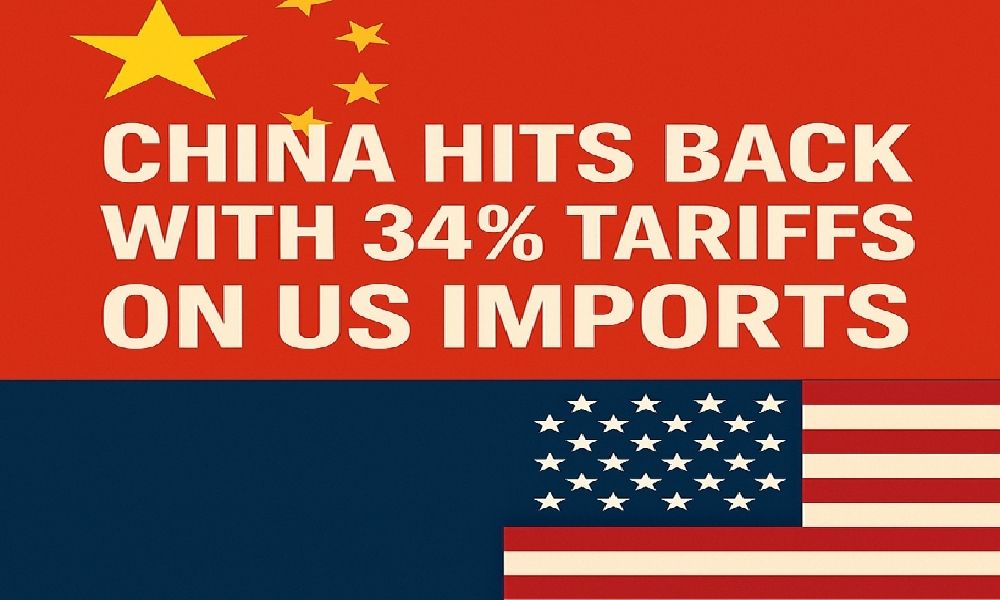BIJING: China announced it will impose 34% reciprocal tariffs on all US imports starting April 10. This move follows President Trump’s latest tariff increase. On April 2, Trump imposed a 34% duty on all Chinese goods entering the US. This decision adds to previous 10% tariff rounds set earlier this year. China’s government condemned the US tariffs, calling them “unilateral bullying.”
Official Response
China’s State Council Tariff Commission released a formal statement on Friday. Officials claim the US measures violate international trade agreements. The new Chinese tariffs will apply to all US goods currently subject to import duties. Exemptions for bonded goods and tax-reduction programs will remain unchanged. China’s countermeasures take effect at 12:01 AM on April 10.
Impact on US Goods
All US products arriving in China will face a 34% surcharge. This significantly increases costs for American exporters. The exemptions apply only to goods shipped before the deadline. Any US product arriving in China by May 13 will be spared the additional tariff. After this date, all US imports will face the full tax.
Background on US Tariffs
Trump previously imposed two separate 10% tariff increases on Chinese imports. His administration justified the moves as measures against illicit fentanyl trade. The latest tariff hike raises the total duty on Chinese goods to 54%. US-China trade relations have been deteriorating since Trump returned to office.
China’s Justification
Chinese authorities argue that their response aligns with international trade principles. Officials stress that their counter-tariffs are necessary to protect national interests. China states that the US policies unfairly disrupt global trade stability. The government warns that continued tariff escalations could harm both economies.
US-China Tensions
These new tariffs mark a significant escalation in the ongoing trade dispute. US businesses reliant on Chinese markets may face declining exports. Similarly, Chinese consumers could see price increases for American goods. Global markets are expected to react to the latest trade war developments.
Political Reactions
US lawmakers have offered mixed reactions to Trump’s trade war strategy. Some support the tariffs as a tool to pressure China on trade policies. Others worry about economic fallout and higher consumer costs. In China, officials maintain that they will stand firm against US trade pressure.
Exemption Details
China has clarified conditions for temporary tariff exemptions. Any US goods shipped before April 10 will not face additional tariffs. However, these exemptions expire on May 13. After this date, all US imports will be subject to the full 34% tariff.
Future Trade Prospects
With tensions high, trade negotiations seem increasingly unlikely. Both sides have hardened their positions, leaving little room for compromise. Analysts predict further economic consequences if the dispute continues. Global businesses are closely monitoring how this conflict unfolds.
What’s Next?
Experts warn that US-China trade relations could worsen further. Additional tariffs or retaliatory measures may be announced in the coming weeks. Businesses on both sides are bracing for potential supply chain disruptions. The long-term effects on global trade remain uncertain.












